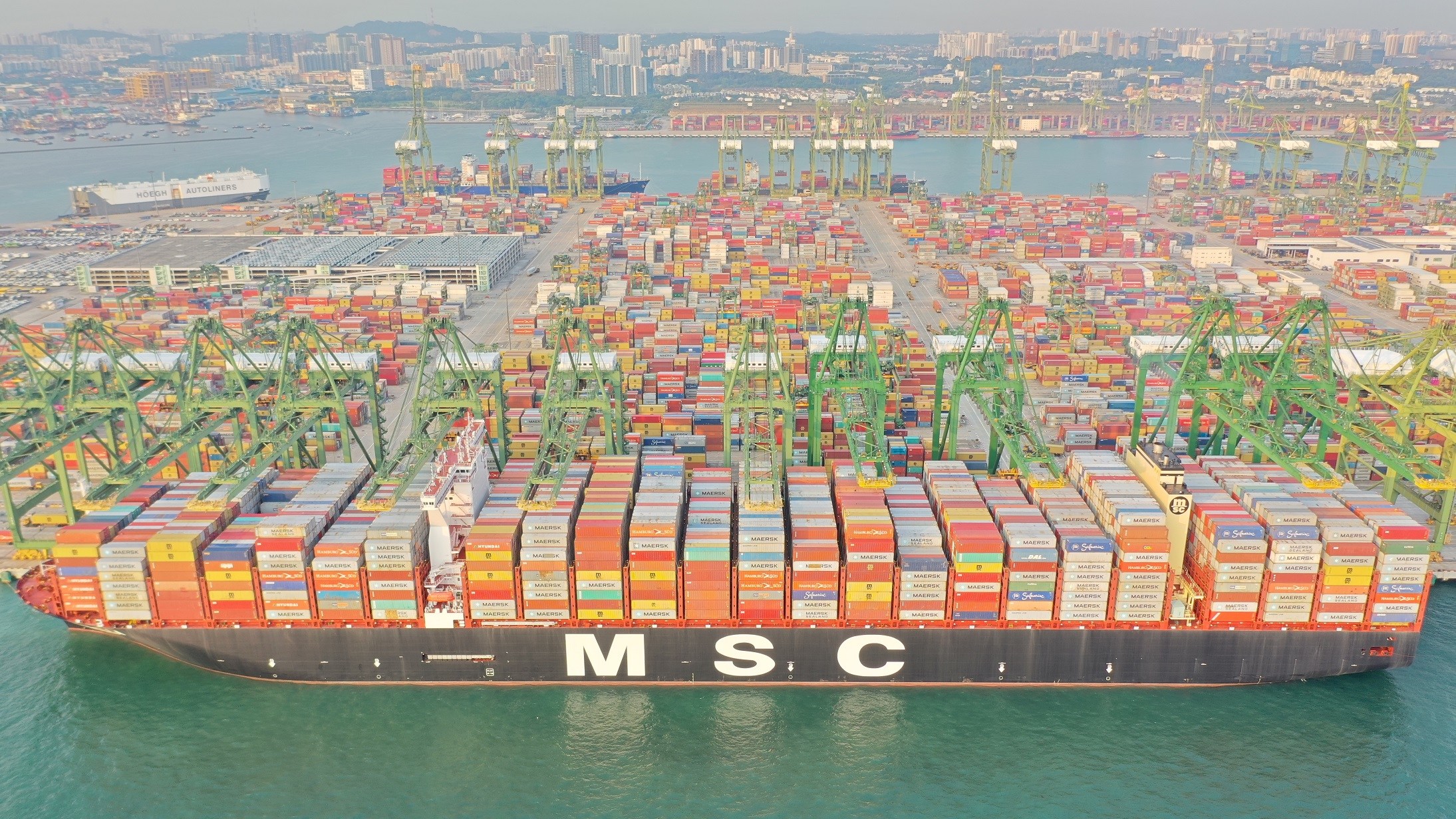With the ramp-up of new and emerging technologies, standards and horizontal collaboration between competitors are now more necessary than ever. A standard is an agreement among a business network constituted by actors that share the same common object of interest.
Adoption of global multimodal standards is a win-win situation, since these standards guarantee interoperability. Standards enable stakeholders in the logistics chain to reap the maximum benefits from smart container solutions, while enabling them to share data and associated costs.
Standards-based solutions increase the ability to collaborate, which in turn increases efficiency. Additionally, data exchange standards reduce development and deployment costs and cut time to market for IoT solution providers. This is also valid for final customers as they will be able to get the maximum value of their data regardless the shipping lines they booked with.
Examples of contemporary standardisation initiatives are the Smart Container standardisation efforts, port call messaging for the integration of what happens at sea and in ports, and track-and-trace standardisations supporting global trade.
For this purpose, there are several organisations that enable collaboration among different actors, such as the United Nations Centre for Trade Facilitation and Electronic Business (UN/CEFACT) using the Smart Container Business Requirements Specification (BRS) to ensure that the various ecosystem actors share a common understanding of smart container benefits, the IMO/FAL (International Maritime Organization Facilitation Committee) developing the IMO Reference Data model to facilitate alignment of definitions that come from different standardisation bodies, as well as efforts pursued by eg the International PortCDM Council (IPCDMC), the International Task Force Port Call Optimization (ITPCO), and the H2020 funded DataPorts project focused upon event definitions, messaging standards, operational processes, and data sharing environments (including the definition of a service market place).
The latter efforts build upon the fact that shipping lines are collaborating with actors together with operating within the port. The standardised definition of the data elements that different devices and operations can generate accelerates integration and the use of data from many sources on different platforms for the enhancement of operations.
In addition, utilising different types of data, such as data from smart containers, port call operations, timing of ship movements, and track and trace enables open communications channels between supply chain actors.
Shipping lines will be limited in their ability to provide their customers with business intelligence coming out of the solutions above in the absence of global standards.
Standard data models and standard APIs will help stakeholders to make the necessary transformation to achieve supply chain excellence. APIs are key to ensuring simplification and acceleration of the integration of digital services from various sources. Data sharing is particularly important in the logistics supply chain due to the large numbers of diverse players and because container movements are global.
Easy access to information for all the relevant stakeholders enables situational awareness (eg in other words; the status, progress, and outcome of a particular process) and empowers data-driven risk analysis and decision-making.
Conclusion
As pointed out by the European Commission, the many zettabytes of data that are channelled from the source to use in diverse business cases are going to expand exponentially, increasingly becoming generated by connected IoT devices. This also means that it will be increasingly possible to derive business intelligence from the combination of multiple sources for the better good for the industry.
In doing so, it is important to distinguish between the sharing of business-critical rather than business-sensitive data, to promote the actors’ willingness to share data.
Digital data standards are now being introduced to encourage the generation of data streams and to facilitate their combination, especially in the logistics chain, as concrete examples of where collaboration is enabling this development.

The use of a standard for sharing data on the timing of port call events allowing for estimations on the cargo flow and a foundation for the exchange of time slot allocations between shipping lines.
It is important to note that the communication technologies are on the agenda as current challenges for the shipping lines. Like telecoms companies, shipping lines must collaborate to define communication technologies – communication is a commonality that transcends beyond competition enabling the necessary adoption of smartness in the networked economy of container shipping.
Other areas to consider, but not discussed in this article are aspects associated with cyber security, a common approach to the identification of consignments, the handling of empty containers positioned in different parts of the world, solutions associated with the digitalisation of bill of lading, aligning common processes used in container shipping, and IoT standards for container shipping.
Collaborating between shipping lines is a win-win strategy for reducing transportation costs, empty miles and the environmental impact provided that logistics are willing to take advantage of the emergence of big data and increasingly interconnected communicating objects (IoT).
Improving the technological aspects is clearly a high priority to getting ahead at this pivotal time of changing regulations and growing demand for business and at the end of the day provide a better service to the end customer. As in many other industries some areas are fully okay to collaborate while others might be more sensitive. The establishment of the DCSA is the proof that the leading shipping lines have come to an agreement to reinforce the utilisation of standards in the container industry.
This link is to the PDF of the full story.
Authors: This report was written by; Hanane Becha, TRAXENS & UN/CEFACT, Mikael Lind, RISE (Research institutes of Sweden), André Simha, MSC (Mediterranean Shipping Company SA), Francois Bottin, CMA CGM, and Steen Erik Larsen, A.P. Moller – Maersk.
A common concern for the author group is the need for standards on data collaboration. The group has come together to identify the diverse opportunities to boost the economies of scale coming out of standardised data collaboration. As agreement on standardization must be made by, and will concern, multiple organisations, this article is to be seen as an encouragement for joining forces within the maritime industry.”
About the authors
Hanane Becha is actively driving smart assets standardisation for key industries such as maritime and rail freight. She is currently the Innovation and Standards Senior Manager at TRAXENS and she is also the Leader of the UN/CEFACT Smart Container Project as well as the UN/CEFACT Cross Industry Supply Chain Track and Trace Project. Hanane has received a Ph.D. and an M.Sc. in Computer Sciences from the University of Ottawa and a B.Sc. from l’Université du Québec. More information about Traxens
Mikael Lind is Associate Professor and Senior strategic research advisor at RISE, has initiated and headed several open innovation initiatives related to ICT for sustainable transport of people and goods. Lind is also the co-founder of Maritime Informatics, has a part-time employment at Chalmers University of Technology, Sweden, and serves as an expert for World Economic Forum, Europe’s Digital Transport Logistic Forum (DTLF), and UN/CEFACT. More information about RISE
Andre Simha is the Chief Digital & Information Officer at MSC Mediterranean Shipping Company, the second largest container carrier in the world, whose team is responsible for implementing and developing the complex data flow between the company’s headquarters and its agencies around the globe, as well as steering the business towards the digital future of the shipping and logistics sector. Simha is also the chairman of the Digital Container Shipping Association (DCSA). More information about MSC
Francois Bottin is the Head of the Digital Factory, a global organisation having the responsibility of leading the digital transformation of CMA CGM Group and digital projects delivery. CMA CGM is a French container transportation and shipping company headquartered in Marseilles, leading worldwide shipping group, using 200 shipping routes between 420 ports in 160 different countries. More information about CMA CGM
Steen Erik Larsen is the head of Technology M&A in A.P. Moller – Maersk, the global integrator of container logistics, connecting and simplifying the supply chains. Larsen has the responsibility of the enterprise risk management aspects pertaining to information technology in integration and partnering, and is also representing Maersk in the Digital Container Shipping Association (DCSA). More information about A.P. Moller – Maersk.







